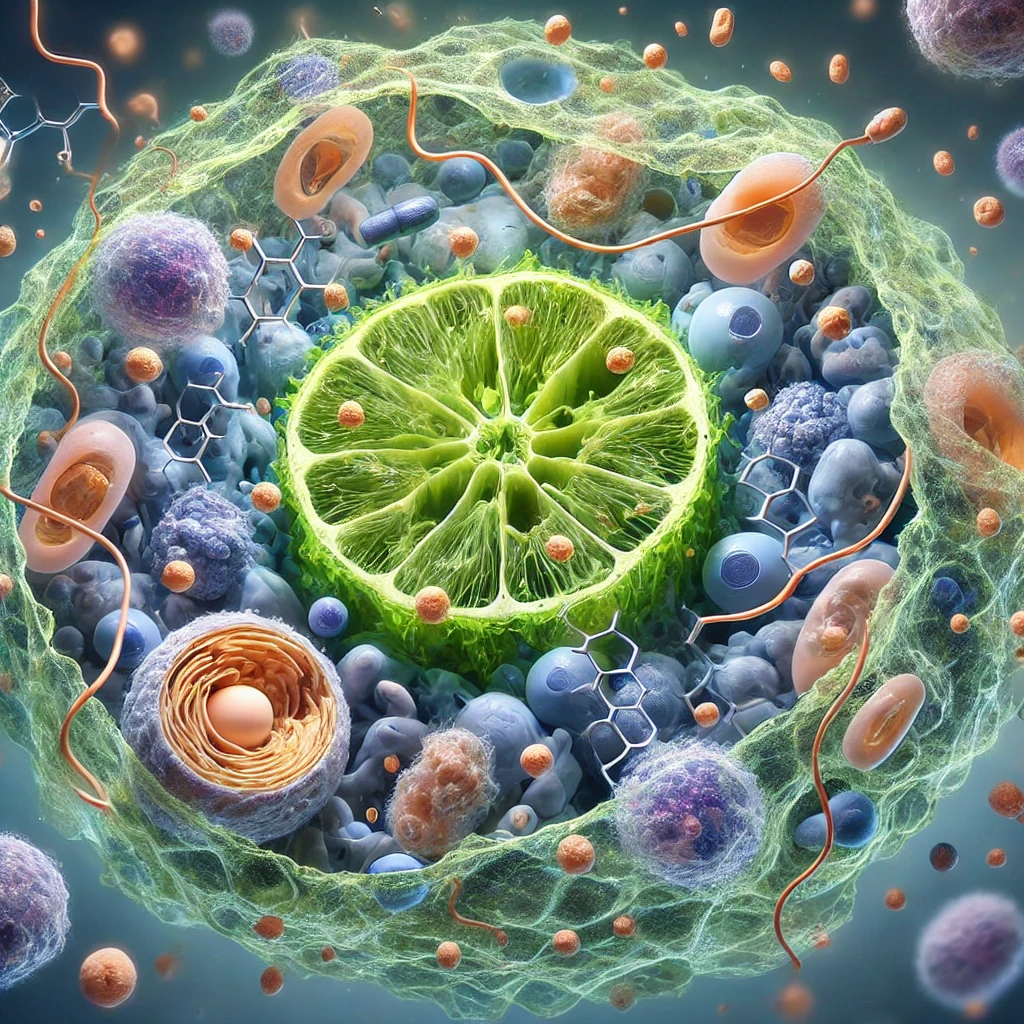What helps clean up cells?
Article Source: Nature - The role of autophagy in cancer

Why you should care
Autophagy is like a recycling system inside your cells. It helps break down old or damaged parts of the cell and reuse the materials to keep the body functioning properly. This process is super important because it plays a key role in fighting diseases, including cancer. Understanding autophagy could help scientists develop treatments to slow down aging, prevent cancer, and improve overall health.
Answering the question… What helps clean up cells?
Autophagy is the body's way of cleaning out damaged cells, so new, healthy cells can thrive. In this article, researchers explain that autophagy literally means "self-eating" (from the Greek words "auto" meaning self and "phagy" meaning eating). Cells use this process to recycle their contents, and it can help prevent diseases like cancer by getting rid of harmful materials. Every day, our bodies process millions of dying cells, and autophagy helps keep things running smoothly.
How was the study done?
The researchers studied the role of autophagy in cancer cells by observing how the process worked under stressful conditions, like nutrient shortages. They used cancer cell samples and observed them in laboratory settings, testing how autophagy helped cells survive and grow. By comparing cells that used autophagy with those that didn’t, the researchers could see the difference in how cancer cells survived.
What was discovered?
- Autophagy can act like a double-edged sword: it helps normal cells survive by cleaning out damaged parts, but in cancer cells, it can also help them resist treatment by repairing themselves.
- The study found that in nutrient-starved conditions, cancer cells increase their autophagy levels by as much as 50% to survive.
- Scientists discovered that certain cancer treatments can be 30-40% more effective when autophagy is blocked, showing that stopping this process could make cancer cells more vulnerable.
- In addition to cancer, autophagy is linked to other diseases like neurodegenerative disorders (such as Alzheimer’s), where the process fails to clear harmful proteins, leading to cell damage.
- On the flip side, boosting autophagy can increase the lifespan of organisms. Studies on mice show that activating autophagy can extend their lifespan by up to 30% by improving cell health.
Why does it matter?
Understanding autophagy could change how we treat diseases like cancer, Alzheimer's, and even help us live longer. By learning how to control this process, scientists can develop therapies that either promote autophagy in healthy cells or block it in harmful ones like cancer cells. This discovery opens the door to new treatments that could improve survival rates and quality of life for millions of people.
